The significance of Indigenous People’s Day
Two Penn students, Nyair Locklear, of the Tuscarora Nation and a member of the Lumbee Tribe, and Ryly Ziese, a citizen of the Cherokee Nation, offer their points of view.
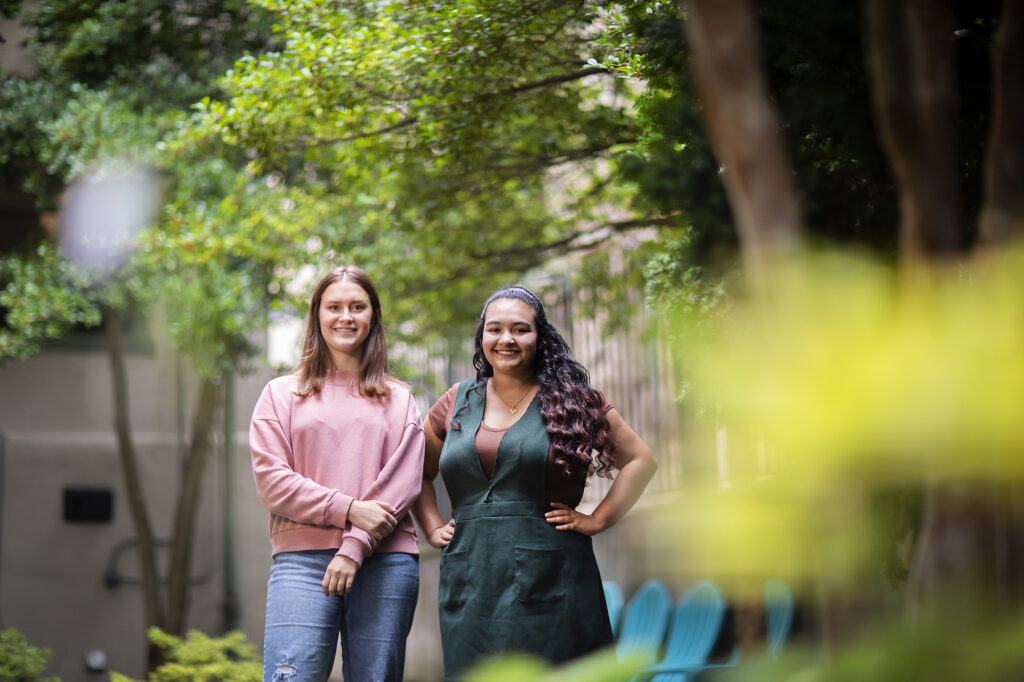
The second Monday in October is Indigenous People’s Day. The date, which had formerly been named after Christopher Columbus, was marked as a federal recognition of the contributions and resilience of Indigenous peoples and their inherent sovereignty, in a 2021 proclamation made by President Joseph R. Biden, Jr.
Indigenous People’s Day was first proposed by Indigenous people at a 1977 United Nations conference to counteract anti-Indigenous discrimination, as well as the inaccurate narrative that Christopher Columbus discovered the Americas, which had been inhabited for millennia by over 600 Indigenous nations.
While Native people have long celebrated their cultures with or without federal acknowledgement, Penn Today spoke with students Nyair Locklear of the Tuscarora Nation and an enrolled member of the Lumbee Tribe and Ryly Ziese, a citizen of the Cherokee Nation. Both are involved in Natives at Penn, an organization that supports students, faculty, and staff interested in Native issues, raises awareness, and builds community at the University.
Nyair Locklear of Raeford, North Carolina, is of the Tuscarora Nation and an enrolled member of the Lumbee Tribe. She is a fourth-year in the College of Arts and Sciences, studying health and societies.
In the school system I grew up attending, they only honored “Columbus Day.” We learned about Christopher Columbus’ contributions to Western society—and very little about his horrendous impact on Indigenous people. Despite not even knowing about Indigenous Peoples’ Day, that didn’t stop me from celebrating my Native heritage. As an eighth grader, I started wearing traditional native attire and jewelry to school every second Monday of October and declared to anyone who looked twice that I was “celebrating Anti-Columbus Day.”
For me, Indigenous Peoples’ Day has always been about standing against colonialism, celebrating my culture in a visible way, and making sure that my peers knew that Native people are not “extinct”—an actual comment I’ve received many times, even at Penn).
Imagine my surprise the first time I realized that although I stood alone in my actions in school, there were many others across Turtle Island and beyond doing the same thing I was. I felt seen and understood outside of just my home community, and I felt proud to be in solidarity with other Native Americans.
As I’ve developed my personal connection with my tribe, my family, and Natives at Penn, Indigenous Peoples’ Day has also become a day centering community and reflection. I don’t want other Indigenous youth to feel as I did for many years, alone in my hurt for everything that was taken from my ancestors and for everything we still endure today. I want to celebrate the achievements of Indigenous people and the perseverance of our culture after all this time. On Indigenous Peoples’ Day, I can see myself in all of my communities—Lumbee, Tuscarora, Natives at Penn, and Native American. I am part of a global community of Indigenous People who are grappling with complex emotions and remembrances. Even though I am reminded of all the work that is still to be done, I take the time to acknowledge all the people who came before me doing the same work, and all the beautiful things we can still celebrate.
Ryly Ziese, of Cookson, Oklahoma, is a second-year student in The Wharton School, concentrating in finance. She is a citizen of the Cherokee Nation.
Indigenous People’s Day recognizes the resilience of my ancestors and the legacy I carry with me. It is a day dedicated to the impact colonialism had on my family and many others. If it weren’t for the assimilation my great-great grandparents faced, I would be speaking Cherokee, telling old Cherokee family stories, and potentially feel more in tune with my culture.
Growing up, I felt as if I had to make up for lost time and experience as much of the Cherokee culture as I could. I attended an all-Native American high school set in the heart of the Cherokee Nation, one of the best decisions I could have made. The resources there were incredible. I got to learn how the nation worked politically, and the school would bring in storytellers and powwow dancers so we could learn from our elders.
Coming to Penn was definitely a shock. Everyone here is very goal-oriented and focused on the future; some of my classmates grew up knowing they wanted to go to Penn since the 8th grade. The native youth I saw were more carefree and fun. In my high school, we didn’t know who was going to which college. It’s about living in the moment.
Indigenous People’s Day is also celebration of the strength of modern-day Indigenous people. I use the past as a motivator to continue to follow my dreams and fight for what I believe in. There’s a stereotype that natives are bad with money. There’s not a lot of natives in finance or consulting. I want to show young female natives that it’s not impossible to achieve, and to help Cherokee Nation citizens with financial stability. Every day, I work to be the voice my great-great grandparents never got to use.
Penn’s Climate Week organizers will mark Indigenous People’s Day with an event on Oct. 10 from 4 to 6 p.m. “Native Land, Native Knowledge: A Conversation and Rap Performance About the Climate Crisis” features alumni Megan Red Shirt-Shaw C’11 (Oglala Lakota) and Talon Bazille C’15 (Crow Creek Dakota and Cheyenne River Lakota).
Greenfield Intercultural Center designates associate director to support Natives at Penn
By Mehreen Syed 11/03/23 12:57am
The Greenfield Intercultural Center appointed Mary Ann Baricuatro as its new associate director this semester, formalizing a position to support Native and Indigenous students at Penn.
Baricuatro serves as the first advisor for Natives at Penn, which is part of Penn’s 7B groups. Baricuatro’s position will continue to foster GIC’s goals of community building, wellness, and student leadership development, according to Valerie De Cruz, the current director of GIC. Baricuatro will join 2016 Graduate School of Education graduate Kia Lor, who is also a current associate director.
“Fall 2023 is the first time that GIC, in its almost 40-year history, has had two associate directors,” De Cruz said.
Baricuatro said the Hawaiian proverb “I ola ʻoe, i ola mākou nei,” which translates to “when you thrive, we thrive,” is a metaphor for higher education and student affairs.
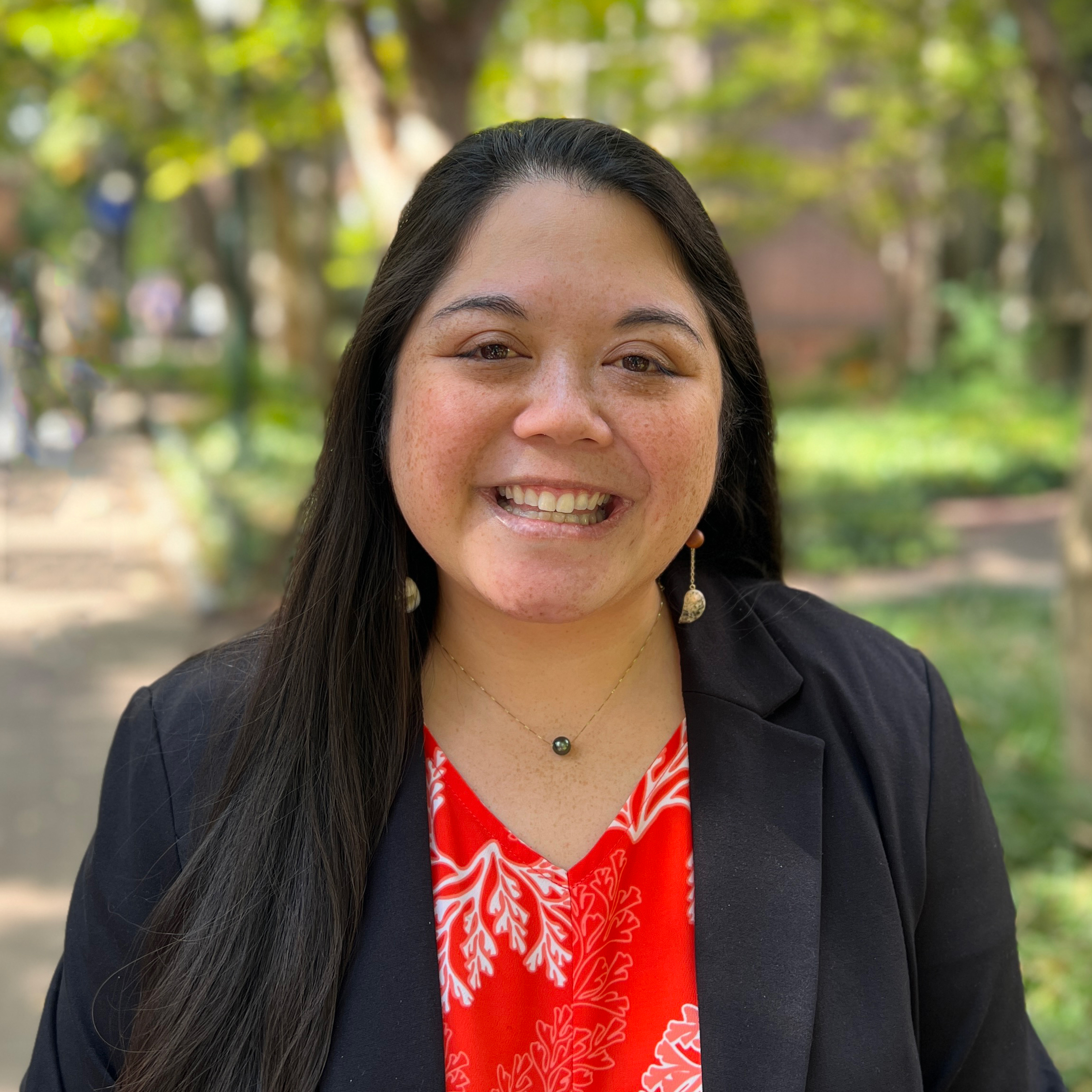
Through her position, Baricuatro also said she aims to relieve some of the responsibilities placed on students in NAP.
“Having [Baricuatro] supporting us means we can focus on supporting our members more instead of trying to fix Penn’s relationship with Native students,” College senior and chair of Natives at Penn Aubrey Welch said.
Specifically, Baricuatro said she wants to focus on offering the group guidance and support in organizing the Powwow and planning Native American Heritage Month.
The Powwow, which will take place in the spring, provides Indigenous and Native students with the opportunity to connect with their culture, featuring vendors from the community, workshops, and Indigenous crafts.
[The Powwow] is so much more than just a meeting. It is a celebration. There’s so much spirit in it, and it still takes for all of us to connect with each other, with our identities, with our ancestors,” Baricuatro said.
Baricuatro said she hopes to increase her capacity to support students while building relationships, adding that she would like to get to know students at an individual level. She also told The Daily Pennsylvanian that she emphasizes the importance of building a deeper relationship with the local Lenape group, while pushing Penn to be better connected with the host tribe.
“With Mary Ann, we can focus on providing fun events … rather than using all our resources to fight for an equal representation and proper support on campus,” Welch said.
Natives at Penn hosts march on campus to celebrate Indigenous People’s Day
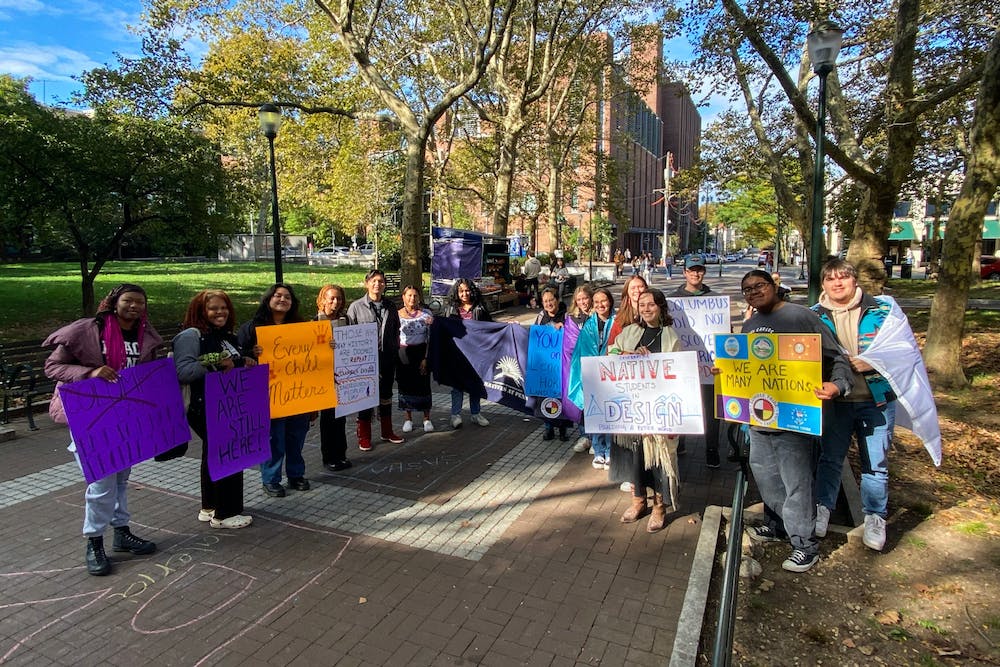
By Dedeepya Guthikonda 10/09/23
Natives at Penn hosted a march on campus to honor Indigenous People’s Day at Penn.
Carrying their tribal nation’s flags, posters, and a Natives at Penn banner, students marched from Gutmann College House to the Starbucks at 34th and Walnut Street beginning at 10 a.m. The march marked the second such celebration on campus since Penn first recognized Indigenous People’s Day in 2021.
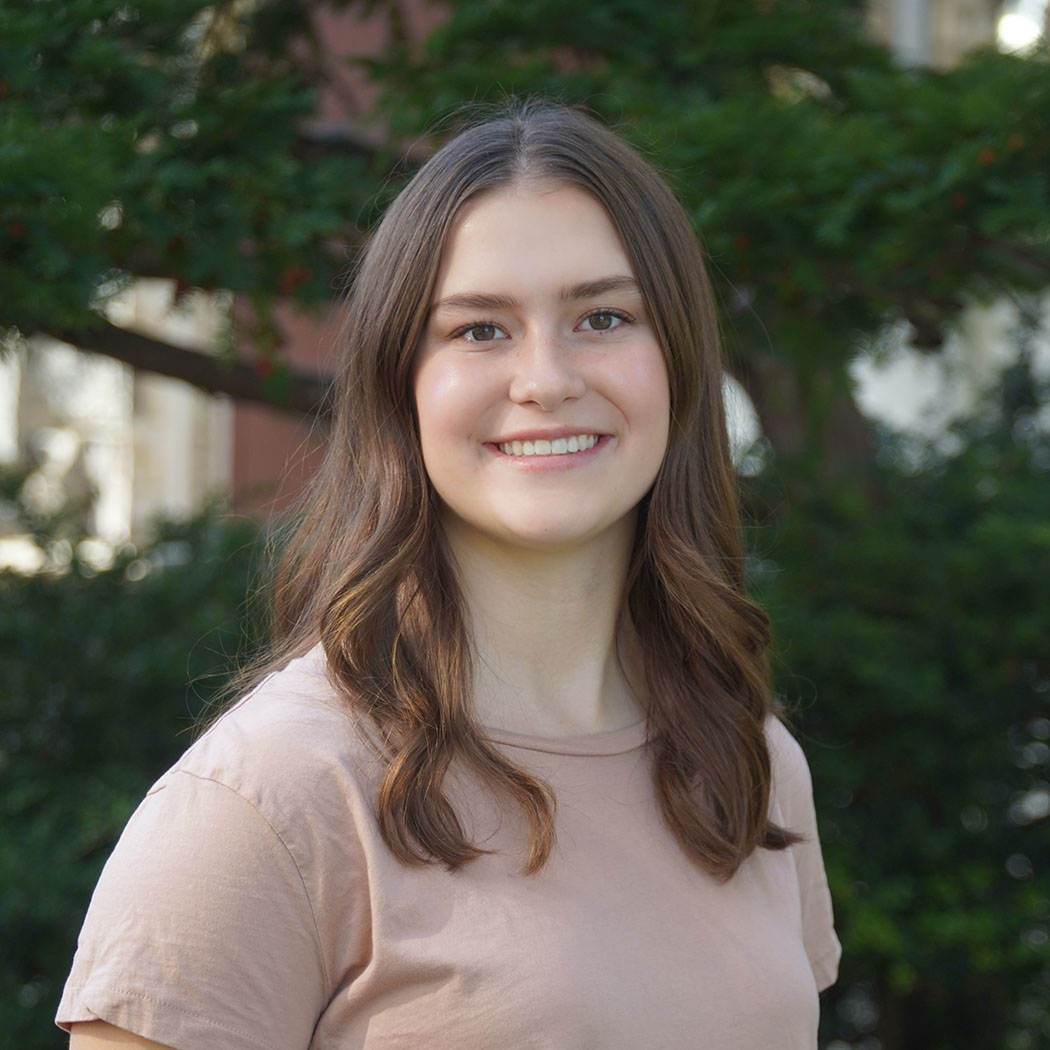
College junior Mollie Benn, who is a member of the Choctaw Nation of Oklahoma, said that the march aimed to celebrate the identities of Indigenous students.
“In prior years, [the march] had been to raise awareness of Indigenous students, but more importantly, to get the University to acknowledge Indigenous Peoples day,” Benn, who is also a Daily Pennsylvanian multimedia staffer, said.
Vice Provost for Education Karen Detlefsen and Vice Provost for University Life Karu Kozuma sent an email to students on Monday addressing Penn’s commitment to Indigenous students and acknowledging Penn’s location in Lenapehoking, the ancestral and spiritual homeland of the Lenni-Lenape people.
Following the march, Natives at Penn hosted a breakfast at Greenfield Intercultural Center, and some members of the group attended Indigenous People’s Day in Penn Treaty Park in Philadelphia’s Fishtown neighborhood.
Ziese, who attended a tribal boarding school, said she is accustomed to having a holiday from classes for Indigenous People’s Day.
“I usually request or I email all my professors every year, and ask for an excused absence, because it is a cultural holiday for me,” Ziese said. “Usually professors are very welcoming to the idea of having an excused absence.”
This past year, the University allocated Natives at Penn a new space in ARCH. The group has been in communication with Kozuma regarding their plans to utilize the new space, in addition to some issues they are working to resolve. The group is hoping to plan more events to further utilize their ARCH space, although they do not plan to fully relocate from the Greenfield Intercultural Center.
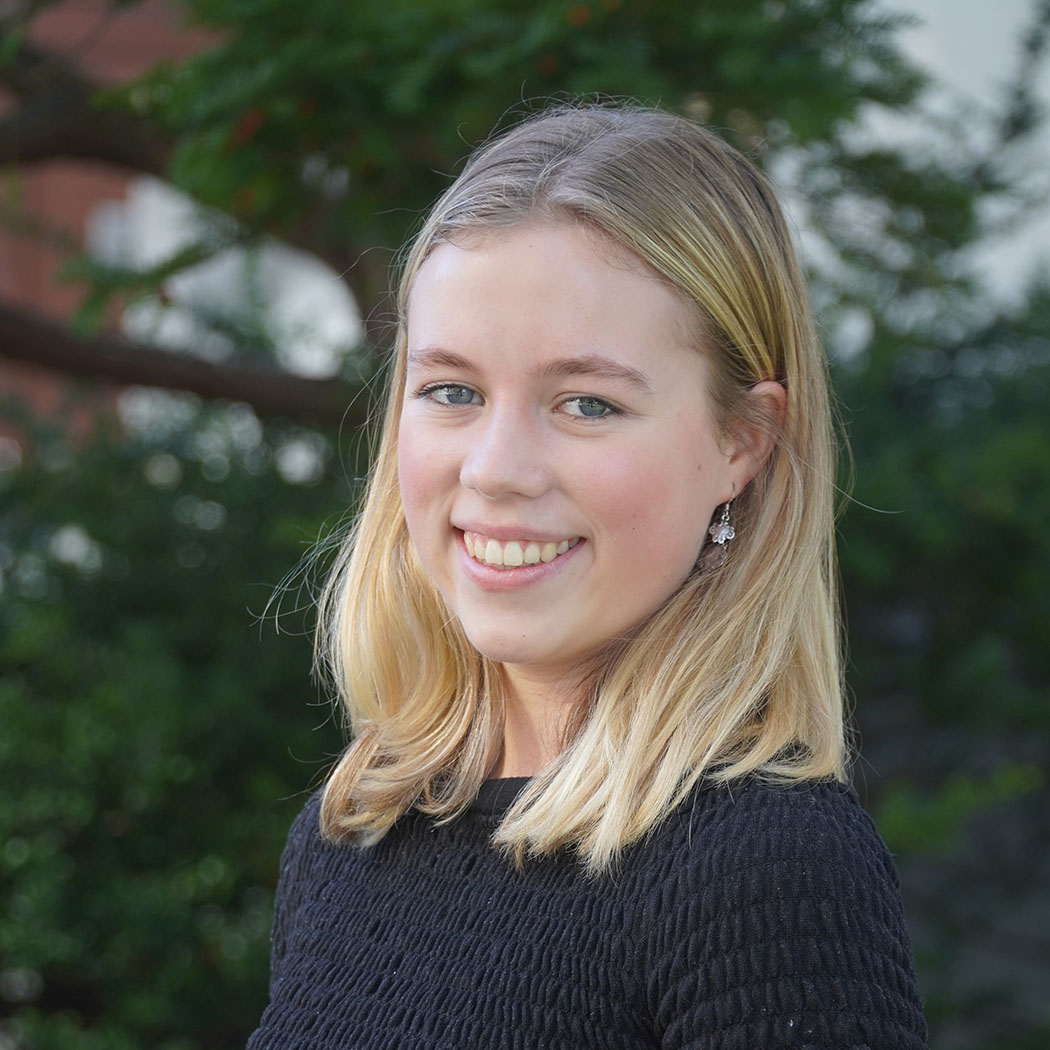
The club recently recruited a new class of Native first-years at Penn.
“We have more new members than I have ever seen,” Ziese, who has been in the club since her freshman year, said.
Embracing Intersectionality: Sean Massa
Awarded prestigious foreign diplomacy fellowship, Alumnus credits a sense of belonging found in Penn’s LGBT Center, GIC, and Native communities.
Before Sean Massa (C’15) could apprehend the intercultural understanding needed to launch a career in foreign diplomacy, he first had to discover his own individual identity.
There was an immediate impact the day he set foot on the University of Pennsylvania campus. Massa began a journey into understanding his own self as a queer student with Native, Pacific Island, Latino, Asian, and Eastern European heritages — the intersectionality of his various identities.
Through acknowledgement of the different forms of discrimination faced as a diverse and queer student, Massa found a sense of belonging in University Life’s cultural centers that helped him thrive.
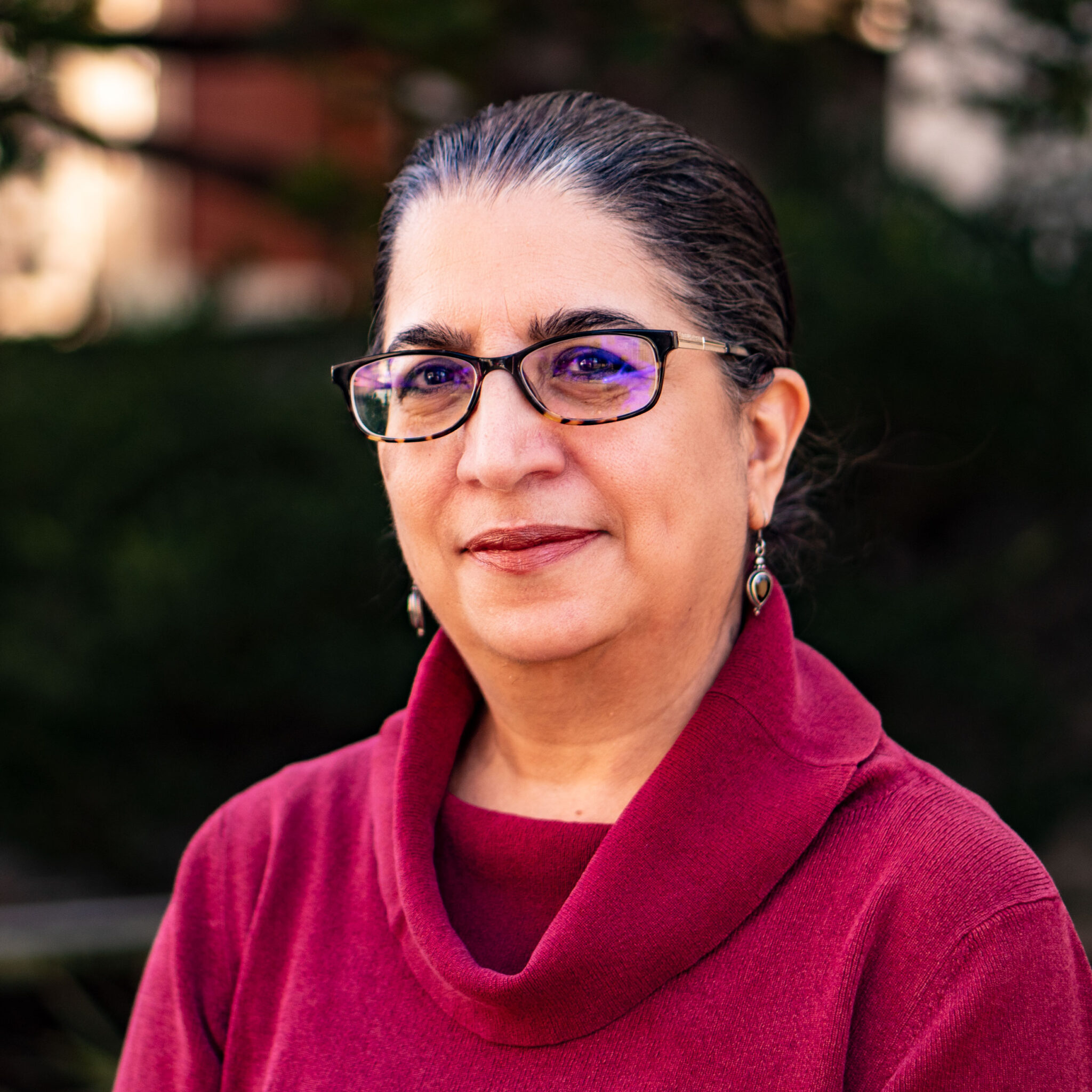
It is no coincidence that his personal exploration began on the steps of the Greenfield Intercultural Center. The GIC became a home away from home during his time in Philadelphia. Through inclusive spaces and programming initiatives, as well as relationships formed with Penn students from diverse backgrounds, the GIC made a particular impact on his personal development as a multiracial student.
“It’s easy to feel like you’re not enough of one thing or the other – you’re not Latinx enough, you’re not Asian enough, you’re not whatever enough,” Massa said. “The GIC people came from these vastly diverse backgrounds. No matter what you were, you were accepted, and you belonged. Not only that, but they also took that angle to other forms of identity beyond ethnicity, like religious identity or socioeconomic background.”
Embracing his identities forged his passion for intercultural engagement and global affairs that shepherded his career path as a diplomat.
Massa graduated from Penn in 2015 with a major in Health and Societies with a concentration in global health and a minor in philosophy. He was a baccalaureate speaker, in addition to serving as a representative on the United Minorities Council.
Pivotal Moments
Massa grew up in San Jose, Calif., a multicultural city that in many ways was a melting pot that was much like his own. He identifies as Mexican and Apache on his maternal side, and Japanese, Hawaiian, and Lithuanian on his paternal side.
Almost immediately, he was drawn to Natives at Penn, a student organization that represents indigenous students. On his first day on campus, Vanessa Iyua, former associate director at the GIC, handed him a Natives at Penn brochure and a Daily Pennsylvanian article on its annual powwow. In many ways, Massa and four other students were being handed over the leadership. Together, they rebuilt the organization, formerly known as Six Directions, from the ground up.
As co-chair, Massa advocated for the Native community on campus by promoting the recruitment and retention of Native American, Native Hawaiian, and Native Alaskan students, as well as connecting students, alumni, and allies in cultural awareness events. Natives at Penn reorganized a room on the third floor of the GIC that they could call their own space, complete with a library and meeting room. The organization hosted a campus powwow that celebrated traditional and modern indigenous culture with singing, dancing, music, food, jewelry, and clothes.
“We were a community,” Massa said. “We looked out for each other. We came from different backgrounds – some of us came from reservations, but most came from the big cities.”
His involvement expanded to a vice president position on the Ivy Native Council, a consortium of the campus organizations across the Ivy League. In that role, he learned from different indigenous groups and understood best practices for addressing certain issues facing those communities. Ivy Native Council met with the National Congress of American Indians to discuss the name controversy with sports mascots, specifically for the Washington football team.
Massa was also involved with the Penn LGBT Center. He was a participant in the LGBT mentorship program and co-chaired the Queer Christian Fellowship.
Massa’s interest in global affairs was piqued by a unique semester-long study abroad opportunity through School for International Training’s International Honors Program. He studied global health and community health in Vietnam, South Africa, and Brazil.
“That was a very pivotal moment for me in terms of getting that international exposure that I had not been introduced to before,” Massa said. “It really changed my perspective upon coming back and then beyond Penn.”
“We were a community,” Massa said. “We looked out for each other. We came from different backgrounds – some of us came from reservations, but most came from the big cities."
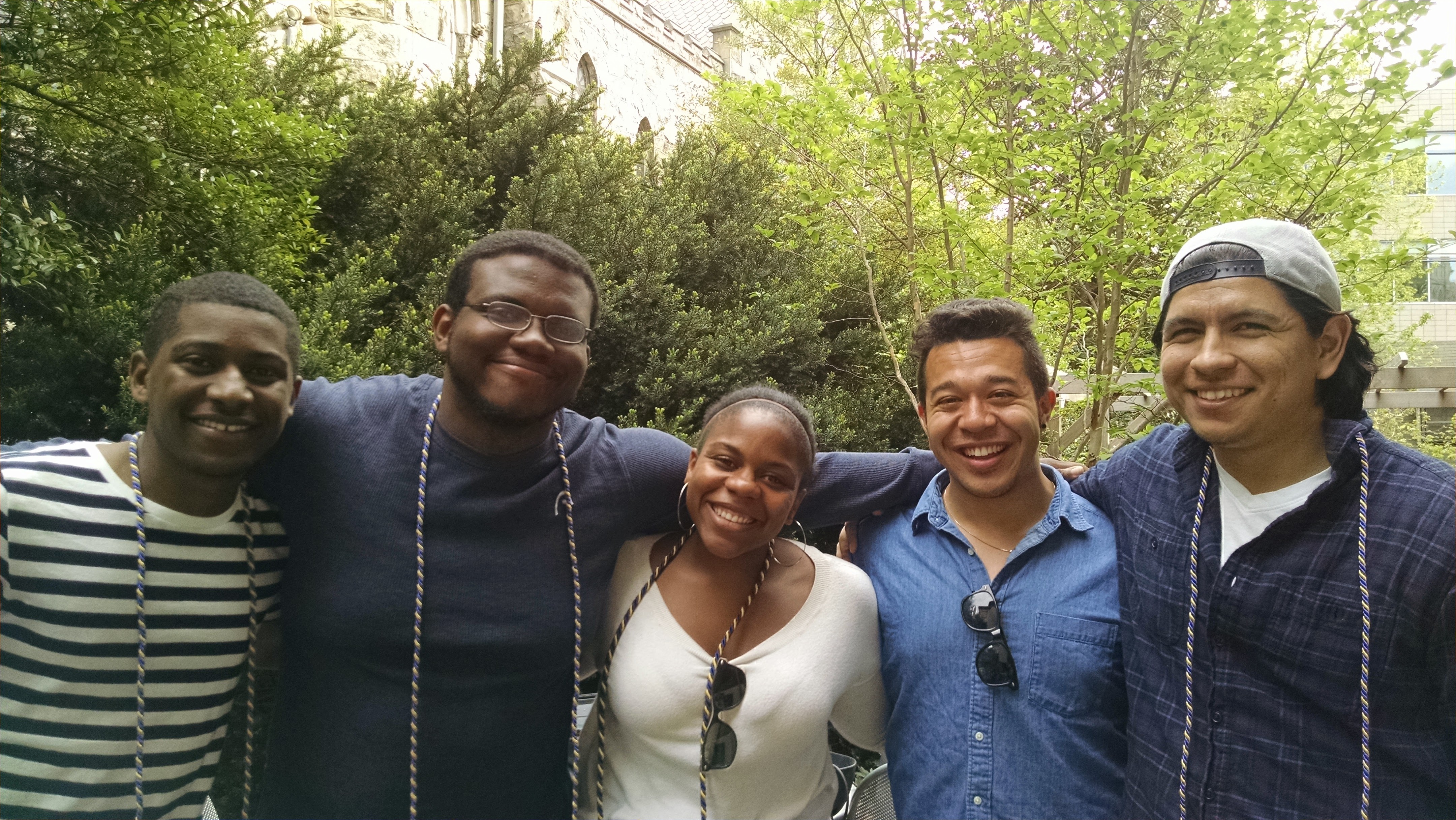
Mentors & Safe Spaces
Director of the GIC Valerie De Cruz first welcomed Massa through his involvement with Natives at Penn and made him feel welcome in his first year. Like many minority students that arrive on an Ivy League campus, Massa, who also identifies as queer, felt imposter syndrome. Massa used De Cruz as a resource anytime he was processing issues of belonging or personal identity.
“She reminded me that I deserve to be there,” Massa said. “When I felt unsure of my own kind of place in the Native community because I am an urban Native, as opposed to someone that grew up on a reservation, she reminded me of my value. She even encouraged me to come out even before I fully accepted who I was.
“She recognized that and nurtured me to fully and authentically be who I am.”
De Cruz had the kind of warmth, attentiveness and caring that allowed her to listen to students in a way that makes them feel heard. In a lot of ways, Massa added, she saw through to the distinct parts of his identity.
Massa grew up in a conservative household and attended a private Christian school for most of his childhood. He took a course called iBelieve: Interfaith Dialogue in Action, a partnership between the GIC, Chaplain’s Office, and the Graduate School of Education. iBelieve was an experimental seminar that took students from various religious backgrounds and fostered a dialogue about different topics ranging from conversion to interfaith marriage.
“Most students come to college with what they were raised to believe,” De Cruz said. “Sean immersed himself in various interfaith groups. He expanded his worldview, and it allowed him to think how he would see himself in the world.”
Massa credits Steve Kocher, Senior Associate Chaplain and Director of the Spiritual & Religious Life Center (SPARC); and Kathleen Hall, Associate Professor of Education and Anthropology, for providing a safe space to confront challenges to his own beliefs.
“That was eye-opening to me in terms of expanding my own worldview and my own understanding of what faith meant to me and my identity,” Massa said. “In a lot of ways, I had grown up in a background that did not fully encourage me to be who I was.”
He served as an upperclassman teaching assistant for iBelieve. Later, as a Penn alumnus, he continues to make an impact at the GIC by mentoring first-generation and low-income students.
Massa’s experiences with the GIC provided him with connections to parts of his own identity that were disconnected to his Bay Area upbringing. He said he felt more grounded in his own Native identity through meeting other students from indigenous backgrounds. Before his sophomore year, he volunteered for College Horizons, a non-profit organization that helps Native American high school students prepare for college. Meeting Native Hawaiians that saw him as one of their own reaffirmed his own identity to his father’s Hawaiian upbringing.
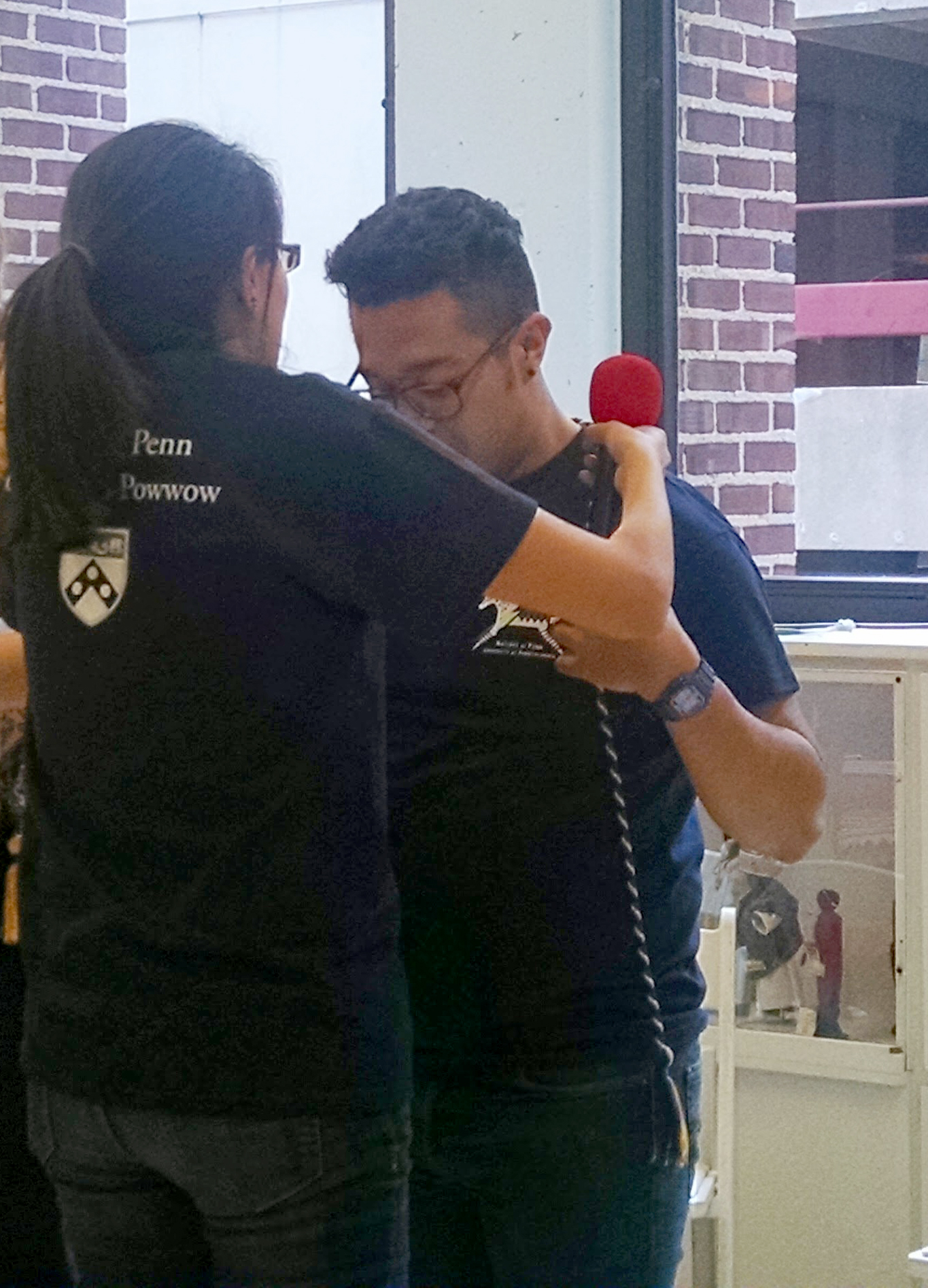
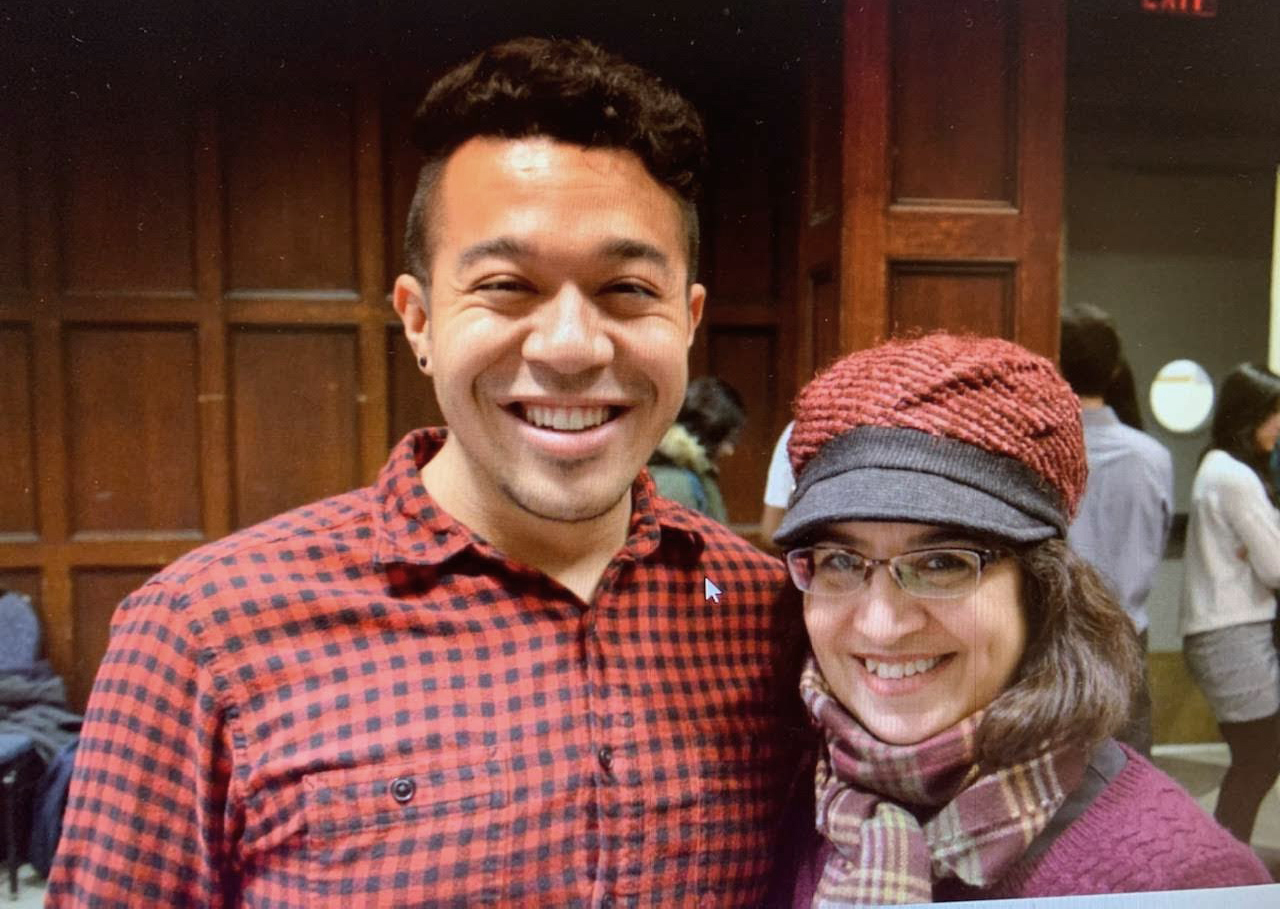
Pipeline of Diversity
In February, Massa was awarded the Charles B. Rangel International Affairs Fellowship. Funded through the U.S. Department of State and administered by Howard University, the Rangel Fellowship is a prestigious pipeline program for diverse individuals that wish to pursue careers in foreign service.
As a Rangel fellow, Massa will intern with Sen. Dianne Feinstein (D-Calif.). He is excited about the congressional internship with his home state’s senator because of her sponsorship of the Violence Against Women Act. Specifically, Massa said VAWA has several provisions that address violence against indigenous and native Hawaiian women.
Massa will intern with the State Department the following summer at a U.S. embassy or consulate abroad to gain boots-on-the-ground experience in Foreign Service. Upon his receiving a master’s degree in May 2024, he will begin orientation to become a U.S. Diplomat, a five-year commitment at an international post in either a political or public diplomacy track. Massa hopes to advance democracy, human rights, and peace around the world.
“I’ve had a lot of time to reflect on what kind of career would best suit me,” Massa said. “I realized I enjoy being abroad and navigating the daily challenges of being abroad through foreign languages, problem solving, and adapting. All those things make me come alive.”
After graduating from Penn, Massa was awarded a Princeton in Asia fellowship to teach at Atma Jaya University in Yogyakarta, Indonesia, and he interned with the United Nations Information Centre and U.N. High Commissioner for Refugees in Jakarta. He received a Master of Arts in Religion at the Yale Divinity School and Master of Laws in Human Rights at University of Hong Kong. Through his LLM program, he picked up the knowledge and skills to promote LGBTQ rights throughout Asia. His dissertation analyzed the legacy of British colonial anti-sodomy laws’ roles in propagating anti-same sex legislation throughout Asia.
His post-graduate experience has also helped shape his career path. At an internship with the United Nations Information Center in Indonesia in 2016-17, Massa met with a mayor to discuss gender empowerment initiatives in the only Indonesian province to practice Sharia.
He moved to Hong Kong in 2018 through a Yale graduate school partnership with the Red Ribbon Centre to conduct research on HIV and ethnic minority and migrant domestic worker communities. Sean also did pro-bono work supporting low-income Hong Kong students pursuing education opportunities in the United States, and he created health and well-being programming with R.U.N. for Refugees, an NGO that works with vulnerable displaced people.
Experiencing Hong Kong’s political unrest movement related to a now-scrapped extradition bill has also motivated his aspirations to become a diplomat. Massa has seen Hong Kong’s ethos change first-hand: its liberal institutions and values have diminished slowly. Political protests have all but ceased, and citizens are hesitant to speak out or voice their opinions. “It made me more aware of the values that the United States upholds and its platform in the world to promote these values and protect them when they are threatened,” he said. “The more I’ve reflected on it, I wanted to pursue a career that would allow me to make a tangible change in that way.”

Throughout June, University Life will celebrate Pride Month with stories and interviews of influential figures in Penn’s LGBTQ community.
